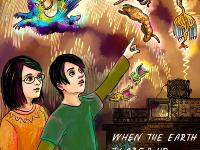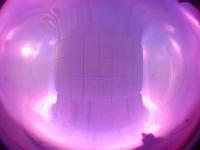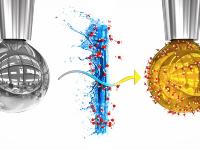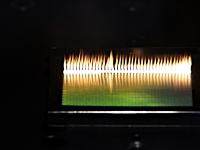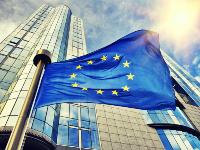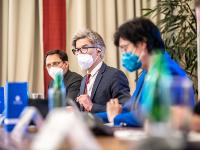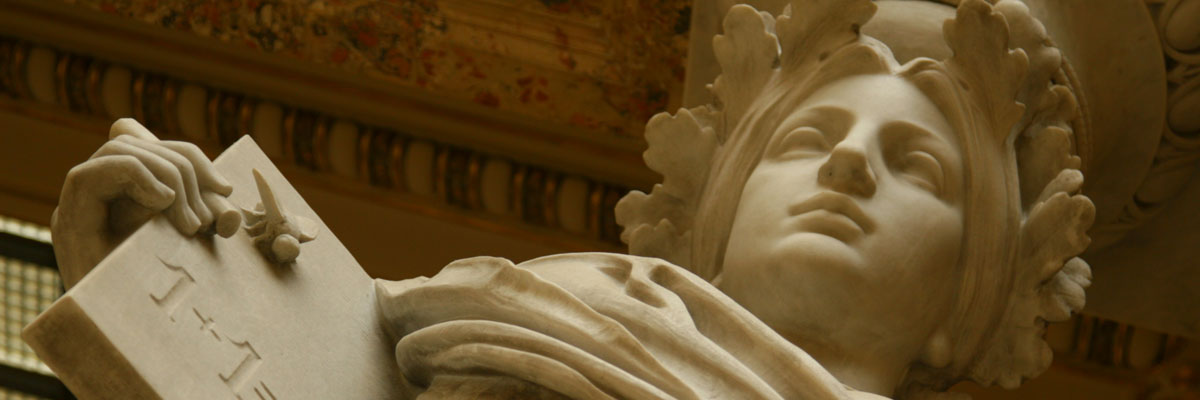
News archive
Search
Selected range: all newsLasers, solar cells, and progress in medicine – for all those, the mankind owe to the science concerned with solid substances. Their research, specifically the solid-state physics, will be the focus of the new SOLID 21 Centre of Excellence. A multi-purpose pavilion with clean rooms for advanced technologies and biophysics laboratories will allow scientists to use the extremely sensitive instruments needed for their research.
How does the Earth‘s magnetic field work? Where does it reach? And what is the mysterious geomagnetic power? A new comic called When the Earth Flares Up casts light on those questions. It was prepared by scientists from the Institute of Geophysics of the Czech Academy of Sciences to inspire pupils, students, teachers, and adults to discover physics in a new way
Not all coronavirus antibodies really protect you. Tests carried out so far usually provide information regarding the level of total binding antibodies but do not say whether these work against covid-19. Now, a new type of test emerged that can quickly determine levels of the protective antibodies, and it should soon appear on the international market.
How can physics help in a medical matter such as drug-induced liver injury? The answer is in cutting-edge imaging techniques. Czech scientists created a procedure for studying the liver cells in 3D in the real time. And thus, they generated new knowledge and approaches to dealing with drug-induced liver injury.
After 12 years of operation, the COMPASS tokamak conducted the very last experiment on Friday, August 20. The Czech tokamak significantly helped in designing a much bigger project – the international tokamak ITER that will be the first fusion device to produce net energy. COMPASS now steps back to allow the new tokamak COMPASS Upgrade with world-unique parameters to “shine”.
Better women’s infertility prevention and also identification of premature menopause. This was the aim of a large-scale international research project involving 180 scientific institutions, including Czech researchers from the Institute of Animal Physiology and Genetics of the CAS. Additionally, the authors have been able to significantly extend the fertility period in mice by gene manipulation. The findings were published in the prestigious Nature journal.
Is it possible to produce water that is as conductive as, say, copper wire? Scientists have hypothesized that this may take place in the cores of large planets, where high pressure compresses water molecules to the point that their electron shells begin to overlap. At present, generating that kind of pressure on Earth exceeds human capabilities. However, an international team of researchers headed by Pavel Jungwirth of IOCB Prague has developed a new method with which they succeeded in making metallic water under terrestrial conditions that lasted for several seconds. Their paper was recently published in Nature.
HiLASE Centre as a part of the Institute of Physics of the CAS has achieved the world record in the speed production of laser-induced periodic nanostructures on stainless steel surface. The Laser Micromachining team led by Peter Hauschwitz applied a concept of multi-beam processing of record speed of 1909 cm2/min to create nanostructures on stainless steel.
When preparing policy in certain areas, the European Commission listens to the views of seven Chief Scientific Advisors. Eva Zažímalová, the President of the Czech Academy of Sciences has been appointed a member of this expert panel. Which is a great personal and professional honour. In her role as a Scientific Advisor she will be helping EU policy makers by providing her expertise, e. g. in epidemiology and social behaviour.
French Research Center in Humanities and Social Sciences (CEFRES) was established thirty years ago in 1991 when Central and Eastern European countries were just recovering from the decades of research isolation they had experienced locked behind the Iron Curtain. CEFRES aimed to restore the ties that had been broken between France and Central Europe in the area of science. This goal has been achieved, and currently CEFRES goes even beyond it. CEFRES organises workshops and conferences on historical, political science or philosophical topics in Prague and, since 2015, has been developing ambitious scientific programmes that could result in an application for a prestigious grant from the European Research Council (ERC).

